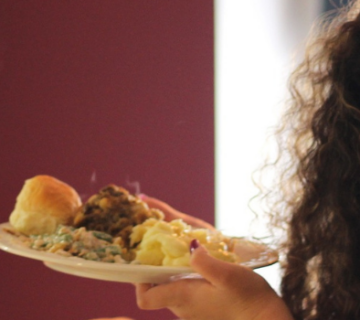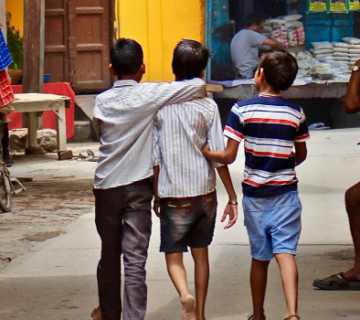All Christians, like the original disciples, have a mission. It’s to bear witness humbly, first with their lives and then with their words, to the love of God that they themselves have found. This way it can become a joyful reality for many, indeed for all. In a society often marked by the search for success and selfish autonomy, Christians are called to show the beauty of fraternity, which recognizes others’ needs and sets reciprocity in motion.
The bill that was immediately approved
I work as a surveyor for the city prefecture, and also participate in a human development project in a poor neighbourhood. Thinking about the precarious conditions of the people living there, I realized that when it came to widening a street or demolishing some buildings, the leftover material was often simply just used to level the ground.
Why not use it to improve the homes of the poorest people? However, a special municipal law was needed.
My manager liked the idea and, after visiting the location and realizing the need, made the necessary contacts on the spot. Once the city prefect accepted our proposal, a bill was presented and immediately approved. Thanks to this, the mayor is now authorized to donate materials that are being discarded for technical reasons to social welfare institutions. These materials are precious for those who live in the shacks, who have no possibility of improving their situations.
A., Brazil
Knowing how to forgive
The civil war in my country caused grief and suffering in my family. My father and brother were among the victims of the guerrilla war. My husband was still suffering the consequences of a beating.
As a Christian I should have been able to forgive, but only pain and resentment grew inside. It was only thanks to the witness I received from some genuine Christians that I was able to pray for those who had hurt us so much.
When peace returned to the country, God put my integrity to the test when we moved back to my hometown from the capital. It had been at the mercy of the government and guerrillas for 12 years. The children had particularly suffered, so we organized a party that many people attended.
I realised that among the authorities present there were some that had been involved with the guerrillas. Perhaps there were even those responsible for the death of my parents among them. Overcoming the initial rebellion inside me, I felt a great peace in my heart. I went to offer them a drink too.
M., El Salvador
The nuances of pain
Back in Italy after an overseas experience as a doctor in Cameroon, I was drawn to people suffering from incurable illnesses and debilitating chronic diseases.
Some deep convictions had emerged in me over the years. The first concerns the infinite nuances of pain, which is never monotonous. Every pain, like every person, is unique. Another strong impression I had was that the small daily moments of waiting were all part of the great expectation of the “final appointment”.
But the most important thing I understood was: these patients, stripped by suffering, seemed to me like living building blocks in the construction of humanity and its values.
Outwardly you see exhaustion, but also transparency; they are bearers of a particular light, the light of God. He seems to become incarnate in those disjointed existences. Often he seemed to dictate the final words of the dying.
More and more I have become convinced that – as Simone Weil says – humanity, if it were deprived of such people, would have no idea of God.
C., Italy
by Stefania Tanesini
(from Il Vangelo del Giorno, Città Nuova, year VI, n.3, May–June 2020)


 Italiano
Italiano Español
Español Français
Français Português
Português




It’s difficult to find knowledgeable people about this topic, however,
you sound like you know what you’re talking about! Thanks
Here is my page … Serena
Oui, tous ces témoignages nous aide en profondeur à assumer notre vie !
Très beau et édifiant, merci !